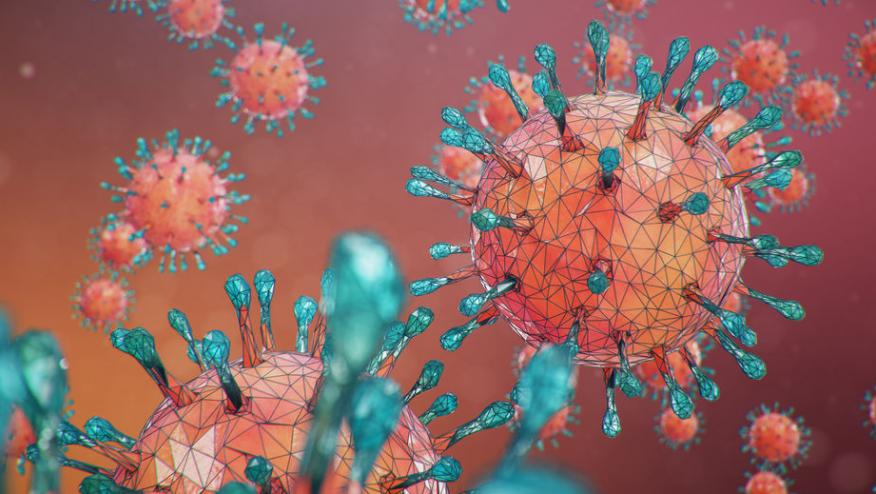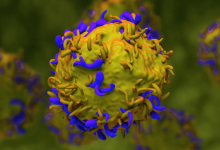Infection and Rheumatic Diseases: A New Dawn Save

Infection in the setting of autoimmune rheumatic disease (ARD) has been the subject of increasing research and clinical interest for decades. Even before the advent of disease-modifying anti-rheumatic drugs (DMARDs), patients with rheumatoid arthritis were noted to have greater susceptibility to infection than those without [1]. It has therefore long been apparent that the increased incidence of infection, particularly opportunistic and serious infections, seen in populations with ARD, may be attributable to the disease itself, patient factors such as comorbidities and the immunosuppressive effect of treatment [2,3].
Despite the huge burden of infection in patients with ARDs, this area of research has really been catapulted to the centre-stage of research agendas and coverage at congresses, including ACR 2020, with the arrival of the coronavirus disease 2019 (COVID-19) pandemic. Clinical concepts and therapies classically only seen in the rheumatology arena were now being discussed in the context of COVID-19. The recognition of the cytokine storm and potential use of immune-modulatory therapies quickly became the subject of clinical trials. A need to understand the unique challenges in managing COVID-19 (a multi-system infective disorder) in patients with multi-system ARDs gave rise to a global registry and numerous research studies [4–6]. The humble steroid, a steady inhabitant of the rheumatologist’s toolkit for decades, became a mainstay on COVID-19 therapeutic guidelines worldwide in the form of dexamethasone [7].
Unsurprisingly, ACR 20 reflects the impact of COVID-19 on the year’s rheumatology research agenda, but also provides ample coverage for other areas, including vaccination, bone and joint infections, and opportunistic and serious infections. The interplay between immuno-pathological mechanisms underpinning infection and rheumatology will be highlighted in a keynote lecture by Eric Rubin, Editor-in-Chief of the New England Journal of Medicine, introducing a flavour of coverage of this area at ACR 20.
The cytokine storm associated with COVID-19 is featured in Friday’s oral abstract session on “Infection-related rheumatic disease” (2F002) through two abstracts. Ayesha et. al. highlight the utility of multiple specialties joining forces in managing the exaggerated inflammatory state seen in cytokine storm syndrome, encompassing those who have classically managed this condition, rheumatologists and immunologists, with input from critical care and infectious diseases. The use of cytokine profiles as a guide to immunosuppression recommendations is highlighted in a poster by Pritchett et. al., while Karim et. al. present results demonstrating a higher proportion of their patient cohort experiencing cytokine storm secondary to COVID-19 were male, Hispanic ethnicity and living in areas of high poverty rate and constituting more than half of deaths in the study population, highlighting potential implications for public health strategy.
The concerning association between minority race and ethnic groups with rheumatic disease, and hospitalisation and invasive ventilation, is further emphasised in results from the COVID-19 Global Rheumatology Alliance Physician-Reported Registry (Gianfrancesco et. al.), again stressing the importance of addressing specific needs of vulnerable populations in public health emergencies. More broadly, the patient voice has been critical in assessing the impact of COVID-19 in our patients with rheumatic diseases, demonstrated by several abstracts in Friday’s “Epidemiology & Public Health” poster session. Both Ziade et. al. and Michaud et. al. have conducted studies which, despite disparate populations, find similarly harmful consequences for patients with rheumatic diseases, including continuity of care and mental health, known predictors of long-term prognosis. Factors such as improved communication channels and drug availability are highlighted as necessities in solving this, including telecommunication, another topic predicted to stimulate much discussion during this year’s congress.
In the backdrop to COVID-19, the significant morbidity secondary to other infections has not decreased, as reflected by the multiple non-COVID-19 infection-related abstracts in this year’s congress. Vaccine hesitancy in patients with rheumatic diseases continues to contribute to the adverse outcomes secondary to infection in this population, and it is key to understand the drivers and patient concerns behind this, to improve uptake and clinical outcomes. Valerio et. al. studied factors determining uptake of the influenza vaccine in adults with rheumatic diseases, demonstrating concerns about adverse events, safety and efficacy. Harris et. al. performed a similar study (abstract #0634) in the pediatric population, with a key barrier identified as knowledge of common symptoms. Both studies indicate strategic targets to increase uptake, applicable to many vaccine-preventable diseases. Harris et. al. also present quality improvement conducted in delivering pneumococcal vaccinations, demonstrating the advantages of multi-specialty involvement and pre-visit planning to increase patient engagement (abstract #0457). Such work is applicable globally to multiple infections and populations with rheumatic diseases, and crucial to changing clinical practice.
The intersection between infection and rheumatic diseases has never been in such sharp focus, and I very much look forward to the special lecture from Dr Anthony Fauci on Saturday in this regard. It is important, now more than ever, to recognise the overlay of clinical concepts between rheumatology and infection, for both pathology and treatment strategies in both fields, to ultimately improve patient healthcare experience and outcomes.
References
1. COBB S, ANDERSON F, BAUER W. Length of life and cause of death in rheumatoid arthritis. N Engl J Med [Internet]. 1953 Oct 1 [cited 2020 Sep 2];249(14):553–6. Available from: https://pubmed.ncbi.nlm.nih.gov/13087647/
2. Rutherford AI, Subesinghe S, Hyrich KL, Galloway JB. Serious infection across biologic-treated patients with rheumatoid arthritis: results from the British Society for Rheumatology Biologics Register for Rheumatoid Arthritis. Ann Rheum Dis [Internet]. 2018 Mar 28 [cited 2019 Oct 26];77(6):annrheumdis-2017-212825. Available from: http://ard.bmj.com/lookup/doi/10.1136/annrheumdis-2017-212825
3. Askling J, Fored CM, Brandt L, Baecklund E, Bertilsson L, Feltelius N, et al. Time-dependent increase in risk of hospitalisation with infection among Swedish RA patients treated with TNF antagonists. Ann Rheum Dis [Internet]. 2007 Oct [cited 2020 Sep 2];66(10):1339–44. Available from: https://pubmed.ncbi.nlm.nih.gov/17261532/
4. Mehta P, McAuley DF, Brown M, Sanchez E, Tattersall RS, Manson JJ, et al. COVID-19: consider cytokine storm syndromes and immunosuppression. Lancet [Internet]. 2020 [cited 2020 Jun 2];395:1033–4. Available from: https://www.
5. Lewandowski LB, Hsieh E. Global rheumatology in the time of COVID-19 [Internet]. Vol. 2, The Lancet Rheumatology. Lancet Publishing Group; 2020 [cited 2020 Nov 3]. p. e254–5. Available from: http://www.nhc.gov.
6. Gianfrancesco M, Hyrich KL, Hyrich KL, Al-Adely S, Al-Adely S, Carmona L, et al. Characteristics associated with hospitalisation for COVID-19 in people with rheumatic disease: Data from the COVID-19 Global Rheumatology Alliance physician-reported registry. Ann Rheum Dis. 2020 Jul 1;79(7):859–66.
7. Dexamethasone in Hospitalized Patients with Covid-19 — Preliminary Report. N Engl J Med [Internet]. 2020 Jul 17 [cited 2020 Nov 3]; Available from: https://www.nejm.org/doi/full/10.1056/NEJMoa2021436










If you are a health practitioner, you may Login/Register to comment.
Due to the nature of these comment forums, only health practitioners are allowed to comment at this time.